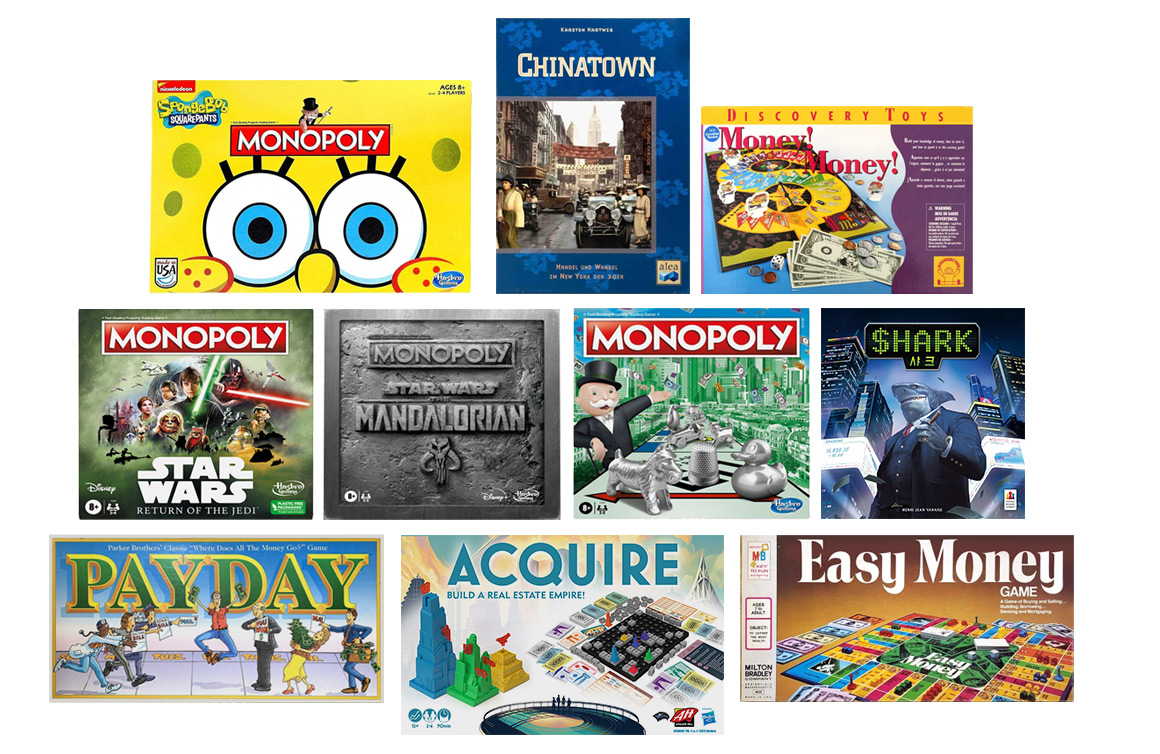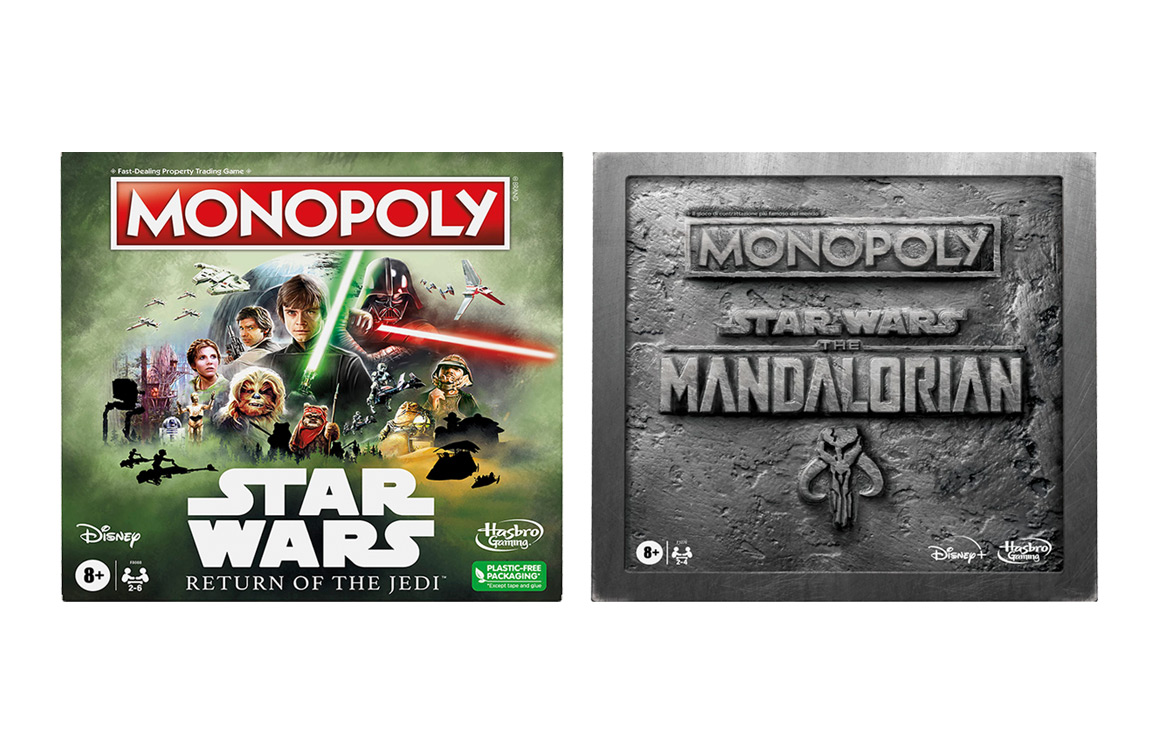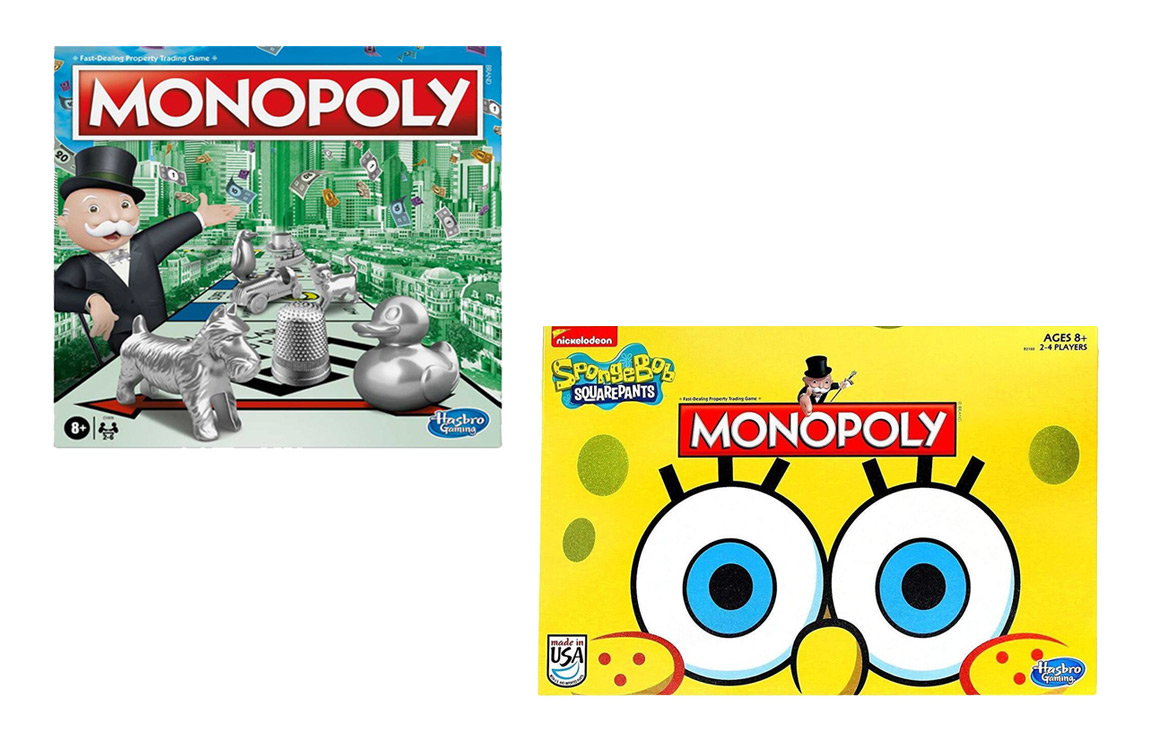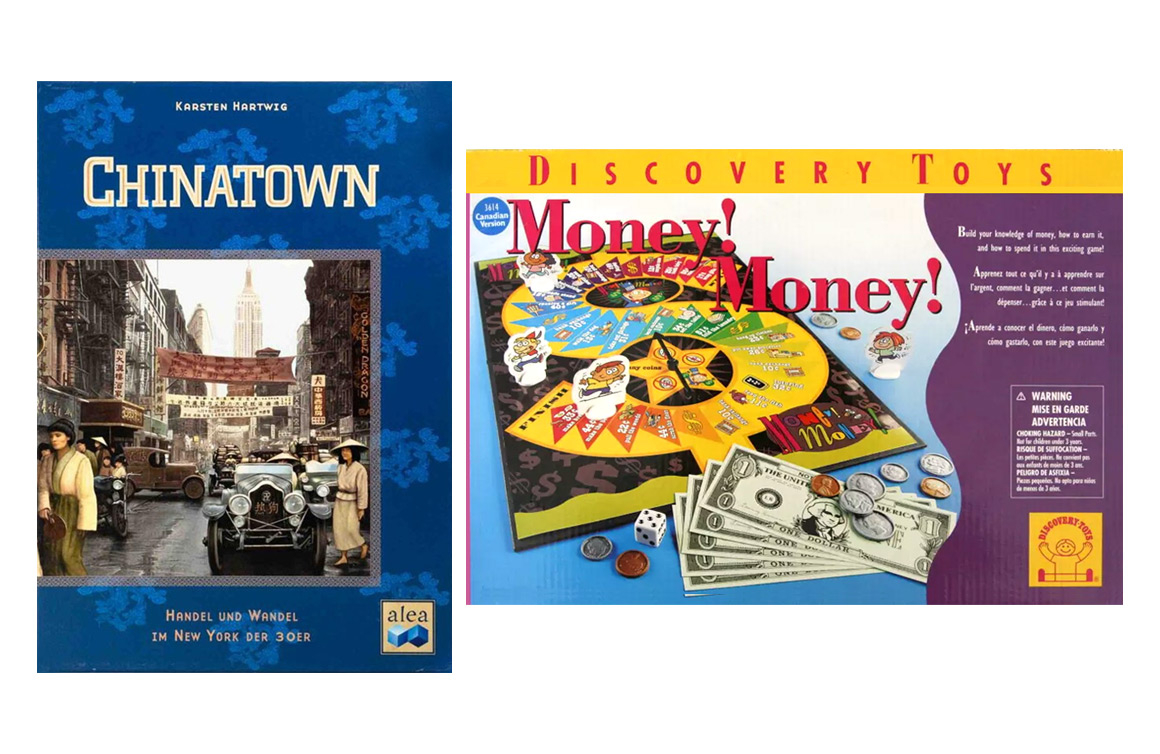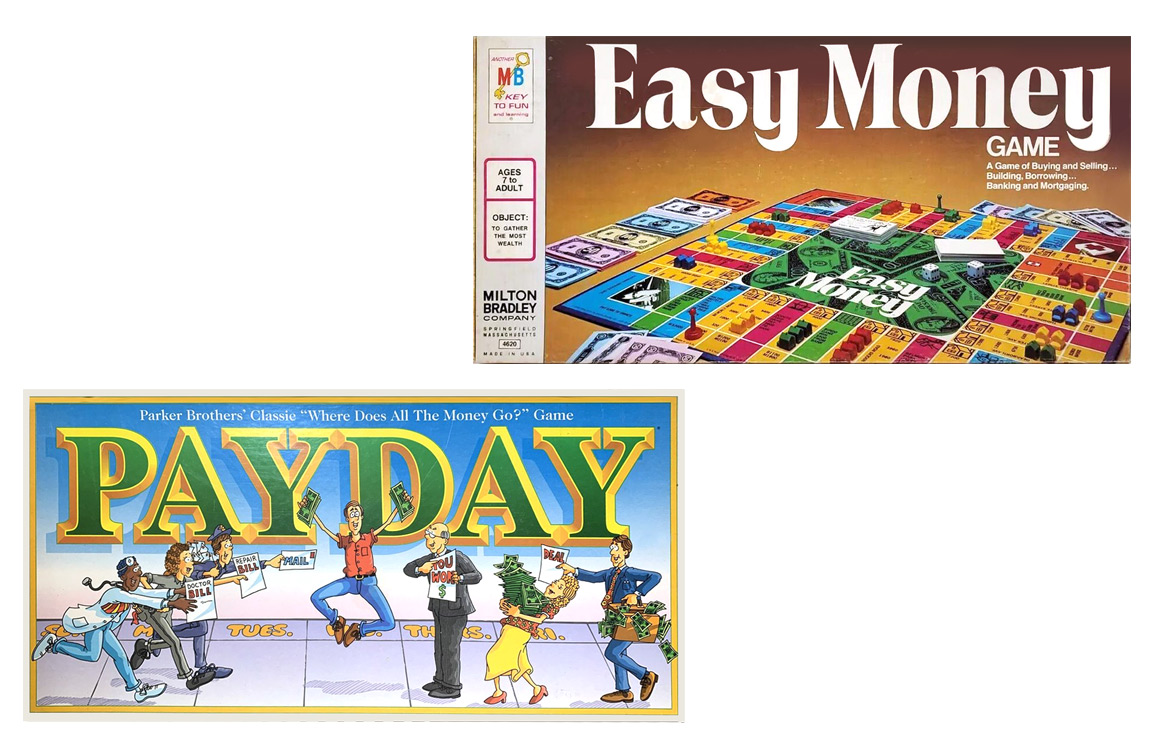Quickly think of a board game that involves play money.
Did Monopoly come to mind first?
Monopoly, one of the most enduring games, revolves around accumulating wealth — and winning means bankrupting everyone else. Its popularity has sparked thousands of money-themed board games, ranging from educational tools for kids to strategy-heavy simulations of life as a tycoon.
Money adds a financial layer to game mechanics and often plays a key role in winning. It also reflects something more profound: the values and aspirations of the time in which a game was created, and our ongoing fascination with wealth.
TANGIBLE WEALTH
Since its origin in the 1930s, Monopoly has kept money at its core, but its many themed variants show how money can take other forms. In Monopoly: SpongeBob SquarePants (2025), the traditional paper bills are referred to as “clams.” Fittingly, SpongeBob himself once declared, “A five-letter word for happiness: MONEY.”
In Monopoly: Star Wars: Episode II (2002), money takes the form of “Imperial credits.” This term is still used in Monopoly: Star Wars: The Mandalorian (2020), but the credits therein are represented by gold and copper plastic discs.
TRENDSETTER
An early competitor to Monopoly, and also inspired by The Landlord’s Game, was Easy Money from Milton Bradley. Released in 1935, it offered simpler and faster gameplay, which some players say is better. The bills are marked with the “MB” logo but otherwise resemble generic play money.
Another money-focused classic is Payday, first released in 1974. It simulates a single month of household income and expenses, including pay cheques, bills, and surprise windfalls. At the end of the month, the player with the most money or the least debt wins. The game’s paper bills feature 1970s-era cartoon portraits with exaggerated features, typical of much art and design in that period.
LEARNING THROUGH PLAY
Beyond games focused purely on acquiring wealth, some are designed to teach kids how money works. Money! Money! (2001) by Discovery Toys is a good example, using plastic bills and coins to make financial learning fun. Although the actual handling of bills and coins has become less common today, they are still in use. Reviews note that kids still enjoy learning about physical money — they enjoy imitating adults, especially when the adults place such importance on money. The Canadian version of Money! Money! has plastic $1 “Loonie” coins instead of dollar bills.
I’ve written about the Sid Sackson-designed game Acquire before. And many serious gamers consider it one of the best all-time games. Players invest in real estate and attempt to hold most of the stock in any property. First published in 1963 as part of the 3M bookshelf series of adult games, Avalon Hill purchased the rights in 1975 and then sold them to Hasbro in 1997. Acquire is still one of the more common games played competitively at gaming conventions. It has also been called “the spiritual successor to Monopoly.” Still in production, Acquire itself has inspired many expansions and many similar games.
Among some popular financial games, Chinatown stands out. First published in 1999 by Alea, an imprint of Ravensburger, it’s known as “a fun game about competitive commerce.” Players must negotiate to establish successful businesses on their properties. Chinatown won multiple awards. At least one version features U.S. presidents on cardstock bills, like U.S. currency.
Another game likely inspired by Acquire is Shark, first published by BGA Plus of Thailand. In this game, abstract play on the game board determines the share values of the various companies. But there are greater variables in Shark. A player can, for instance, “tank” an opponent’s stocks, which may cause all players to lose money. The game has a specific end, and the wealthiest player — as usual — wins. Shark carries its own currency, marked with large denominations.
COLD CASH, WARM FEELINGS
While digital games can track your net worth behind the scenes, there’s still something special about handling physical play money: counting bills, stacking coins, and pretending to be flush with cash. During the Great Depression, when real money was scarce, Monopoly’s fantasy of abundance struck a powerful chord. That tactile joy hasn’t disappeared, and as board games continue to thrive, the emotional thrill of “getting rich” isn’t going anywhere.

